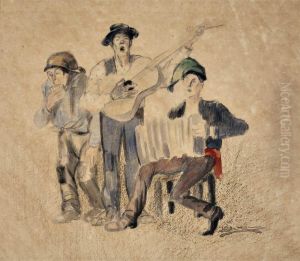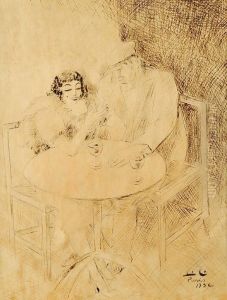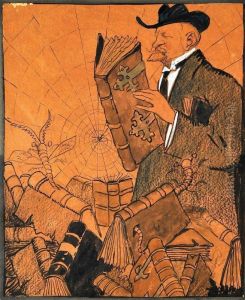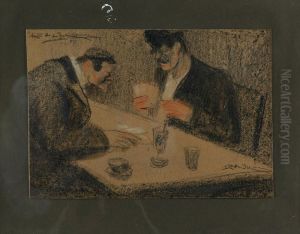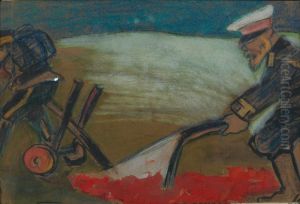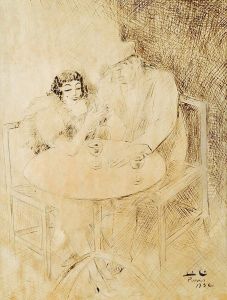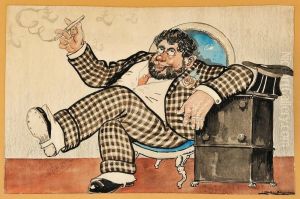Tomas Julio Leal Da Camara Paintings
Tomás Júlio Leal da Câmara was a Portuguese painter and caricaturist, born in 1876 in Lisbon, Portugal. He is recognized for his distinctive contribution to Portuguese modern art, especially through his work as a caricaturist, which often carried a sharp political and social critique. His artistic journey began in earnest after he pursued art studies, first at the Academia Real de Belas-Artes in Lisbon, and later, broadening his artistic horizons in Paris, which was then the epicenter of the avant-garde art world.
Leal da Câmara's work was deeply influenced by the vibrant cultural and artistic movements he encountered in Paris, but he always retained a strong connection to his Portuguese roots. His paintings and caricatures often reflect the social and political landscapes of early 20th century Portugal, making him a significant figure in the context of Portuguese modernism. His art was characterized by a unique blend of humor and satire, and he became renowned for his ability to capture the essence of his subjects with both affection and critical acuity.
Throughout his career, Leal da Câmara engaged with a variety of themes, ranging from political figures and societal norms to everyday life and the human condition. His caricatures were published in various newspapers and magazines, playing a key role in public discourse. Beyond his caricatures, his paintings also depict scenes of Portuguese life with a keen eye for detail and a distinctive stylistic approach that combined elements of realism and impressionism.
Tomás Júlio Leal da Câmara was not only a prolific artist but also an active participant in the cultural life of Portugal. He was involved in several exhibitions and artistic movements, contributing to the dynamism of the Portuguese art scene. His legacy is preserved through his vast body of work, which continues to be celebrated for its artistic merit and historical significance. He passed away in 1948, leaving behind a rich portfolio that remains an important part of Portugal's cultural heritage.
